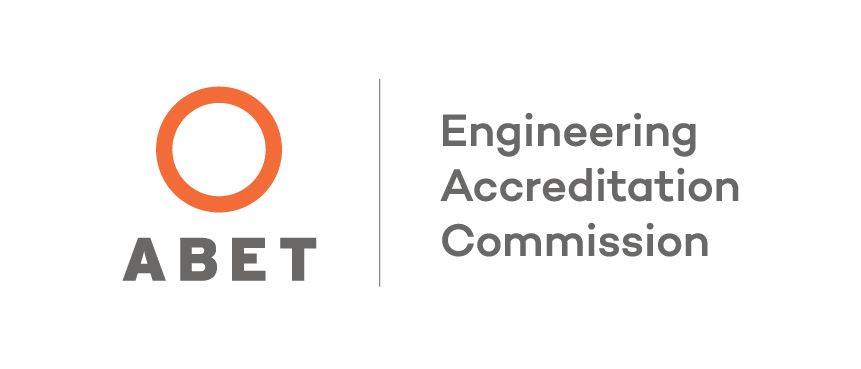Electrical Engineering
Accreditation
Our undergraduate electrical engineering program is accredited by the Engineering Accreditation Commission of ABET, www.abet.org. Why does ABET accreditation matter?

Mission Statements
University of Dayton Mission
The University of Dayton is a top-tier Catholic research university with academic offerings from the undergraduate to the doctoral levels. We are a diverse community committed, in the Marianist tradition, to educating the whole person and linking learning and scholarship with leadership and service.
School of Engineering Mission
Rooted in the Catholic, Marianist tradition of educating the whole person, we guide the transformation of students into engineering professionals who excel technically, embrace innovation and collaboration, possess an entrepreneurial spirit, demonstrate social and global awareness, and lead their communities for the betterment of all.
Electrical Engineering Program Mission
Our mission is to provide an educational experience of the highest quality to produce the discipline’s most valued graduates, with the skills and knowledge to learn, lead, and serve in electrical and computer engineering related professions and in their communities.
Program Educational Objectives
Our electrical engineering alumni will
- Find rewarding careers as engineering professionals. As electrical engineers they will design and develop new products, technologies and processes that incorporate one or more of the following elements: analog and digital circuits, signals and systems, computer design, software development, and hardware/software integration.
- Continue their professional education either formally, in graduate school, professional school, or through industrial training programs or informally, through activities such as continuing education, attendance in short courses, professional workshops and conferences.
- Exercise and further develop their skills in professional communication through activities such as project briefings, conference presentations, technical reports and manuals, and journal publications.
- Participate in activities for the betterment of society and carry on the traditions of the University of Dayton by maintaining high ethical standards in their professional activities and by serving their country and community through service, leadership and mentoring.
Student Outcomes
Our students will have
- An ability to identify, formulate, and solve complex engineering problems by applying principles of engineering, science, and mathematics.
- An ability to apply engineering design to produce solutions that meet specified needs with consideration of public health, safety, and welfare, as well as global, cultural, social, environmental, and economic factors.
- An ability to communicate effectively with a range of audiences.
- An ability to recognize ethical and professional responsibilities in engineering situations and make informed judgment, which must consider the impact of engineering solutions in global, economic, environmental, and societal contexts.
- An ability to function effectively on a team whose members together provide leadership, create a collaborative and inclusive environment, establish goals, plan tasks, and meet objectives.
- An ability to develop and conduct appropriate experimentation, analyze and interpret data, and use engineering judgment to draw conclusions.
- An ability to acquire and apply new knowledge as needed, using appropriate learning strategies.
| UG Enrollment Fall 2022 | Bachelor's Degrees Awarded 2022-2023 | UG Enrollment Fall 2023 | |
|---|---|---|---|
| Chemical | 186 | 62 | 168 |
| Civil | 219 | 60 | 228 |
| Computer (CPE) | 145 | 37 | 151 |
| Electrical (ECE) | 193 | 80 | 142 |
| Mechanical | 730 | 166 | 702 |
| Discover Engineering | 59 | N/A | 42 |
| Electronic & Computer Engineering Technology | 34 | 7 | 35 |
| Industrial Engineering Technology | 43 | 13 | 36 |
| Mechanical Engineering Technology | 126 | 39 | 117 |
| Discover Engineering Technology | 21 | N/A | 16 |
| Total | 1756 | 464 | 1637 |
